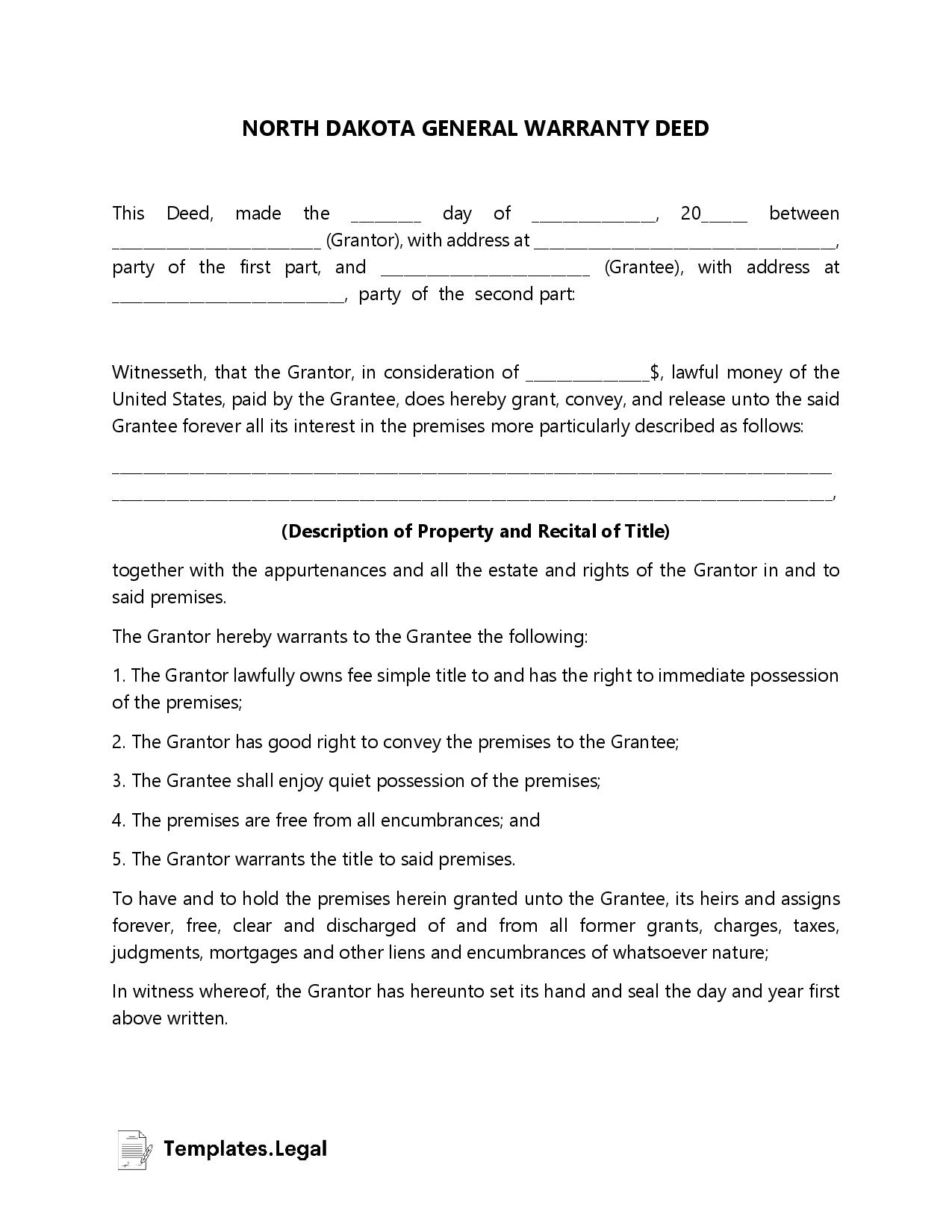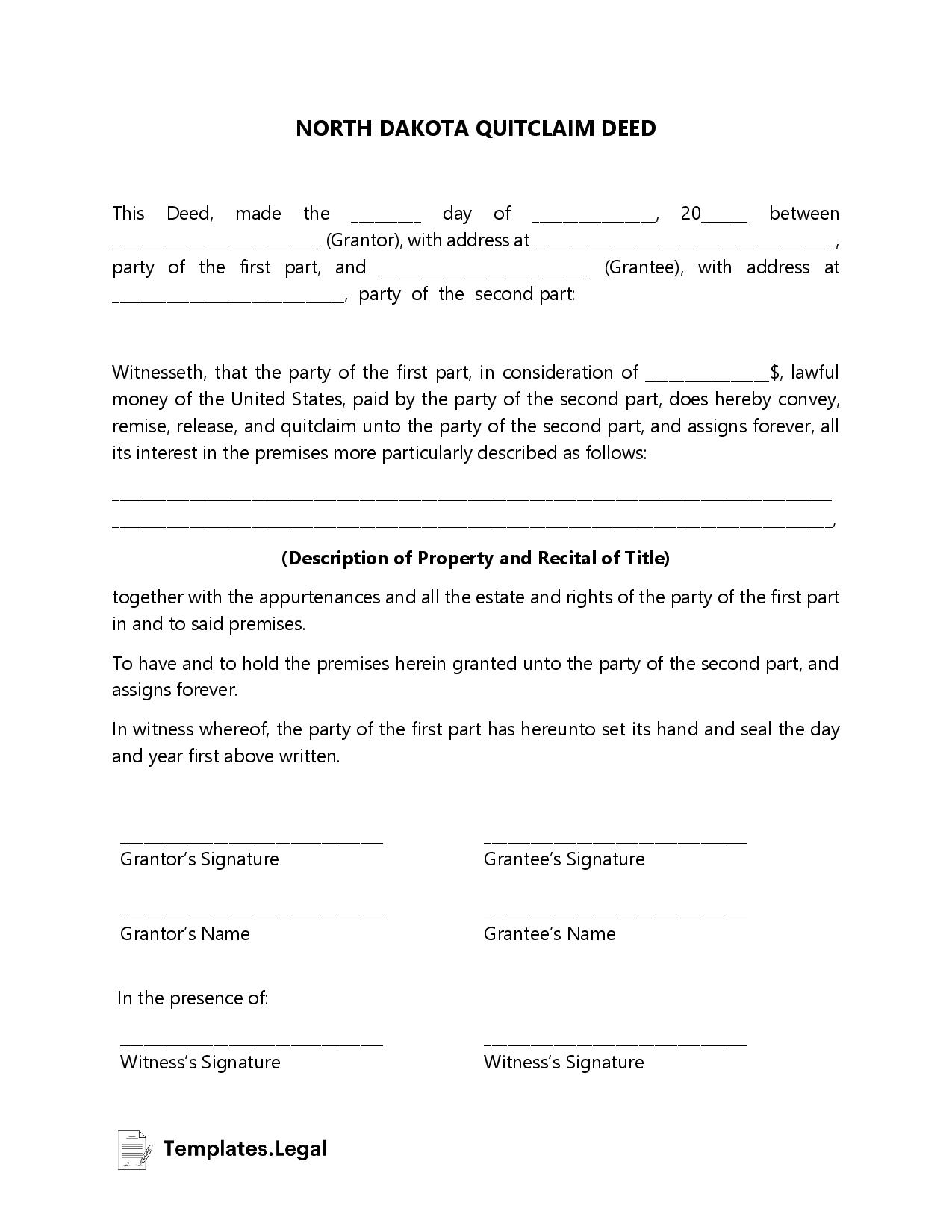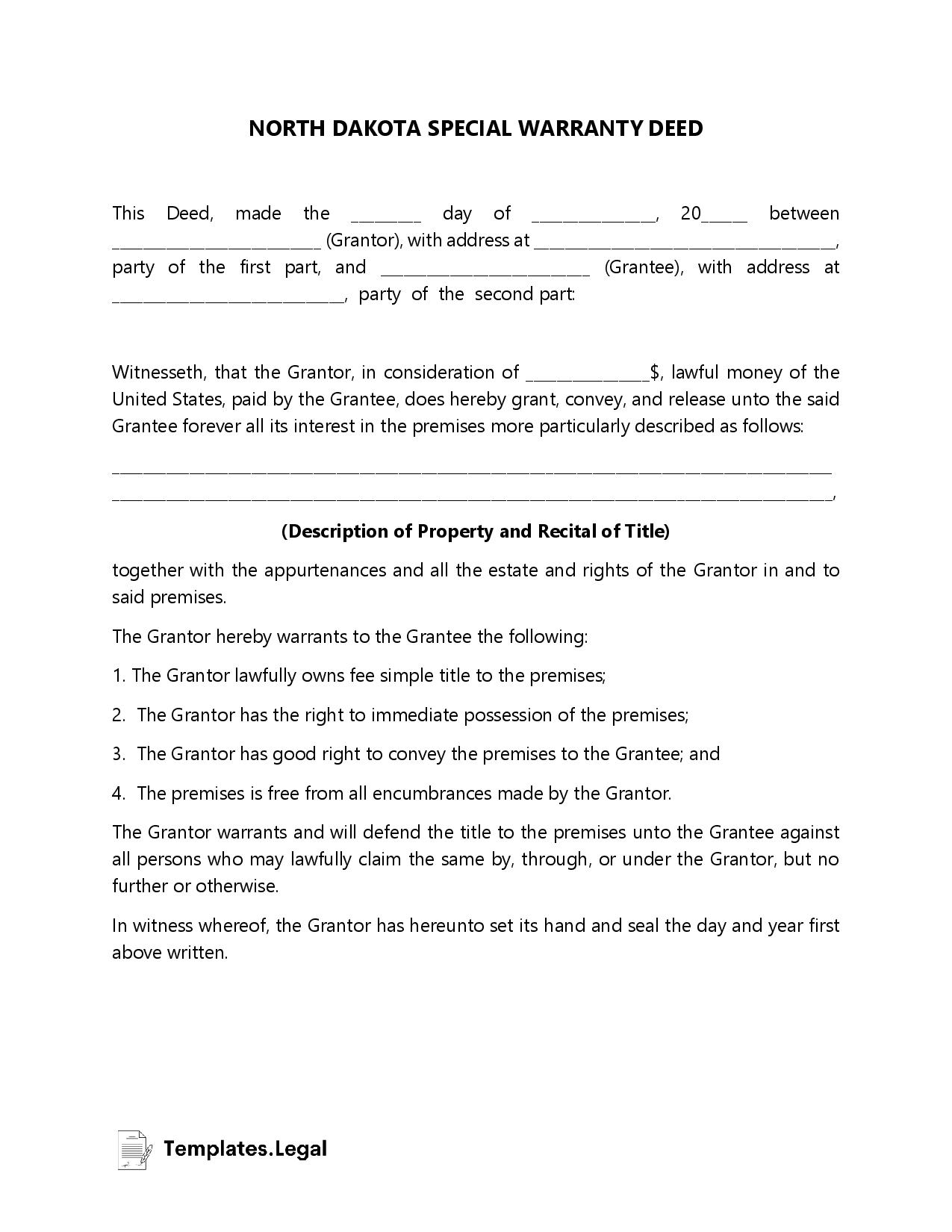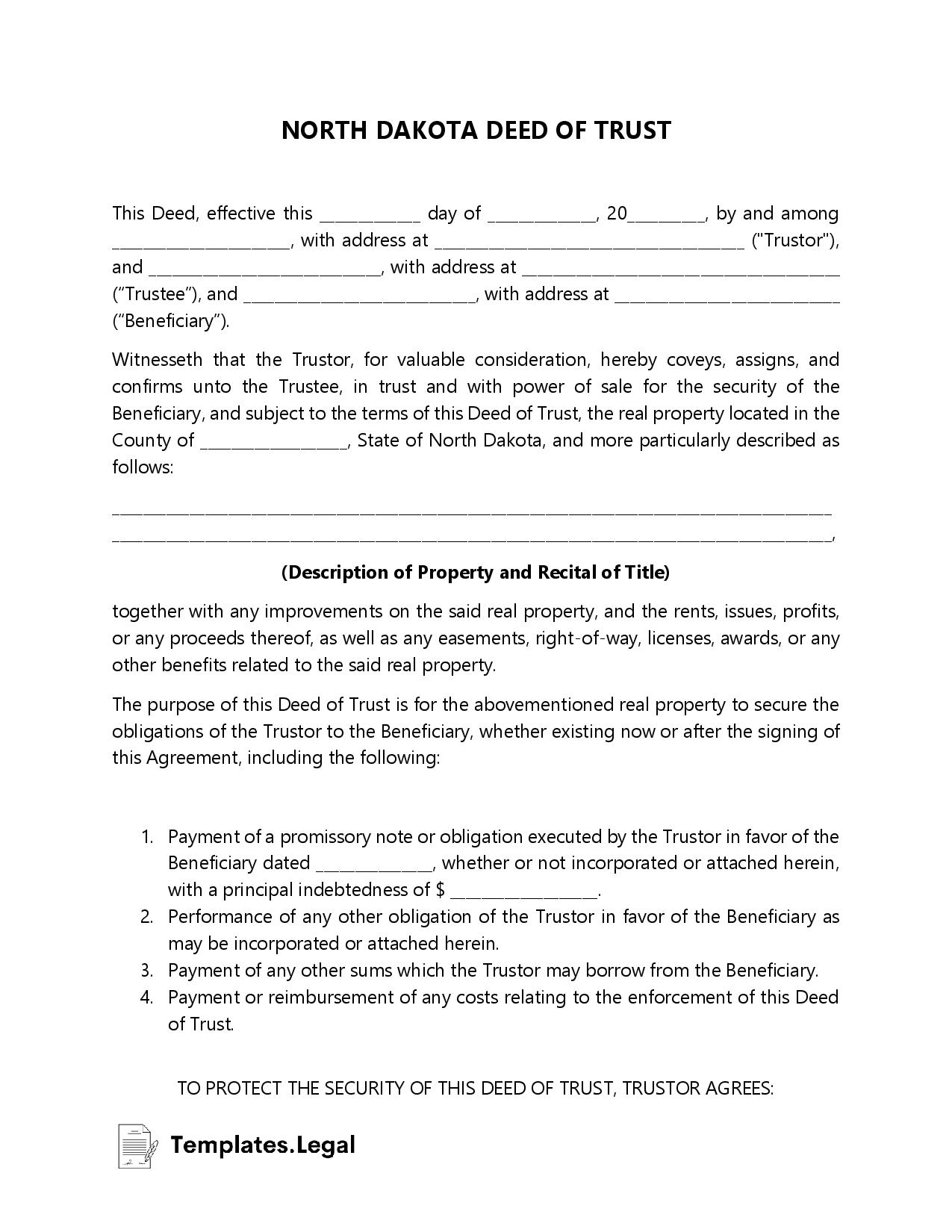North Dakota Deed Forms & Templates
A deed is a document that transfers an ownership interest in real property from a grantor to a grantee. Different types of deeds are used for different transactions. Here are the most common types of deed transfers in North Dakota.
North Dakota General Warranty Deed
In North Dakota, a warranty deed, sometimes also called a general warranty deed, is used to transfer clear and complete title of property from the grantor to the grantee. The general warranty guarantees that the entire chain of title, including previous owners, is free of any undisclosed defects or encumbrances.
If in the future it turns out that the grantor did not have a clear title, they are responsible for the cost of clearing any title defects for the grantee. This includes defects that the grantor themselves caused or defects caused by prior owners.
North Dakota Quit Claim Deed
A North Dakota quitclaim deed transfers a grantor’s entire property interest to a grantee. However, with a quitclaim deed, there are no guarantees that the grantor’s title is clear. If the grantor’s ownership interest is defective, then the grantee receives a defective ownership interest. The grantor is not responsible for clearing up any title defects for the grantee.
Because of the lack of protection offered to the grantee, a quitclaim deed is rarely used for property sales. The most common uses for quitclaim deeds are transfers between family members, gifts, or transfers between former spouses due to divorce.
North Dakota Special Warranty Deed
In North Dakota, a special warranty deed is a more limited version of the general warranty deed. Under a special warranty deed, a grantor guarantees that they have not caused any undisclosed encumbrances or defects in the title. They are responsible for clearing any defects that they have caused during their ownership of the property.
However, a special warranty deed makes no guarantees that prior owners had clear title to give to the grantor. The grantee must clear any defects that existed before the grantor took ownership.
North Dakota Deed of Trust
In general, a deed of trust conveys a borrower’s ownership interest to a lender (the “trustee”) as security for a loan. However, in North Dakota, a deed of trust is not permitted. Instead, North Dakota uses another instrument, called a mortgage, to secure loans.
If the borrower defaults on a loan secured with a deed of trust, the lender as trustee may sell the property to collect on the loan without a court order. In North Dakota, where mortgages are used to secure loans, the lender must go through the courts to collect on the loan.
FAQs
Here are a few frequently asked questions about North Dakota property deeds.




